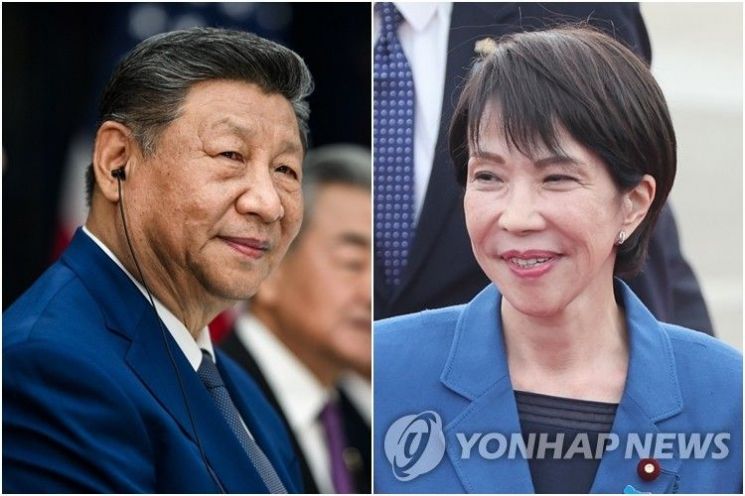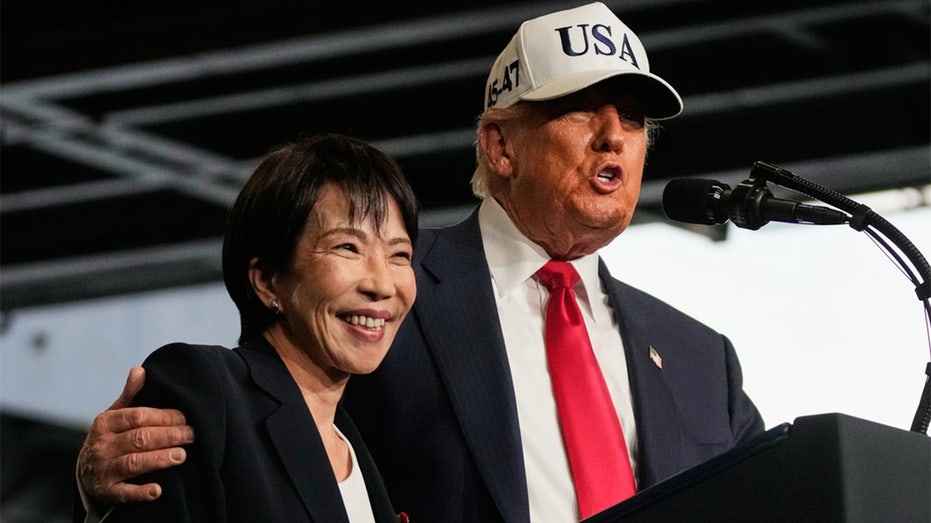
Rising Tensions: Diplomatic Fallout Between Japan and China
The diplomatic landscape in East Asia has become increasingly fraught following a provocative statement from a Chinese diplomat directed at Japan’s new prime minister. This incident underscores the escalating tensions between two of the region’s most powerful nations, particularly concerning Taiwan.
Provocative Remarks Ignite Outrage
In a shocking development, Xue Jian, the Chinese consul general in Osaka, issued a threatening statement regarding Japan’s Prime Minister Sanae Takaichi. This followed Takaichi’s comments emphasizing the potential ramifications of a Chinese blockade of Taiwan, which she asserted could lead to a “survival-threatening situation” for Japan.
Takaichi, who took office just last month, addressed a parliamentary committee expressing her concerns about the geopolitical stability in the region. The proximity of Taiwan—approximately 60 miles from Japanese territory—means that any military action involving the island could have immediate and serious implications for Japan.
Unprecedented Threats in Diplomatic Discourse
Xue’s response on the social media platform X (formerly Twitter) was particularly harsh. He stated, “That filthy neck that barged in on its own — I’ve got no choice but to cut it off without a moment’s hesitation. Are you prepared for that?” This aggressive rhetoric has drawn widespread condemnation in Japan, reflecting a delicate balance in diplomatic relations that has been disrupted by this incident.
Japan’s Strong Response
Japanese officials wasted no time in responding to Xue’s comments, with Chief Cabinet Secretary Minoru Kihara labeling the consul general’s remarks as “extremely inappropriate.” Kihara confirmed that Japan had formally protested to Beijing, seeking accountability for Xue’s inflammatory statements. He emphasized that these remarks were not isolated incidents but part of a broader pattern of troubling behavior from the Chinese diplomat.
China’s Defense of the Consul General
In a twist that further complicates matters, China’s Foreign Ministry appeared to back Xue’s comments. Spokesperson Lin Jian claimed that the consul’s statements were a direct response to Takaichi’s “wrongful and dangerous” comments about Taiwan. Lin accused Japan of failing to acknowledge its historical responsibilities and cautioned against foreign interference in China’s internal affairs, particularly regarding Taiwan, which Beijing considers a core territorial issue.
Contextualizing the Diplomatic Friction
The dispute highlights the tenuous diplomatic ties between Japan and China, relationships riddled with historical grievances and modern territorial disputes. As Prime Minister Takaichi seeks closer military cooperation with the United States to counter China’s rising influence, tensions are likely to exacerbate further.
Japan’s Strategic Military Posture
Takaichi, recognized for her hawkish stance on China, advocates for bolstering Japan’s defense capabilities amid growing regional uncertainties. She has committed to increasing defense spending beyond 1% of the country’s GDP and adopting a more proactive military posture, particularly regarding the Taiwan Strait.
U.S. defense officials have indicated that Japan’s involvement would be crucial in any potential conflict over Taiwan—a scenario that Beijing views with increasing alarm.
A Call for Constructive Communication
In the wake of the uproar, Takaichi characterized her statements regarding Taiwan as “hypothetical.” She expressed a desire to avoid comments of this nature moving forward, indicating her awareness of the delicate balance in diplomatic communications between Japan and China.
Looking Ahead: The Future of Japan-China Relations
As tensions mount, the future of Japan-China relations remains uncertain. The incident illustrates how quickly diplomatic discussions can devolve into threats and hostility, exacerbating an already complex relationship marked by historical disputes and modern geopolitical dilemmas.
The situation serves as a stark reminder of the fragile nature of international diplomacy in the region, where provocative statements can have far-reaching consequences. Moving forward, it will be crucial for both nations to engage in constructive dialogue to address their differences while recognizing the broader implications of their interactions on regional stability.
Conclusion
As Asia’s two largest economies navigate these challenging waters, the international community watches closely. Ensuring peace in the Taiwan Strait is not only vital for Japan and China, but also for the stability of the wider Asia-Pacific region. The necessity for careful diplomacy has never been more evident than in the current geopolitical climate.
















